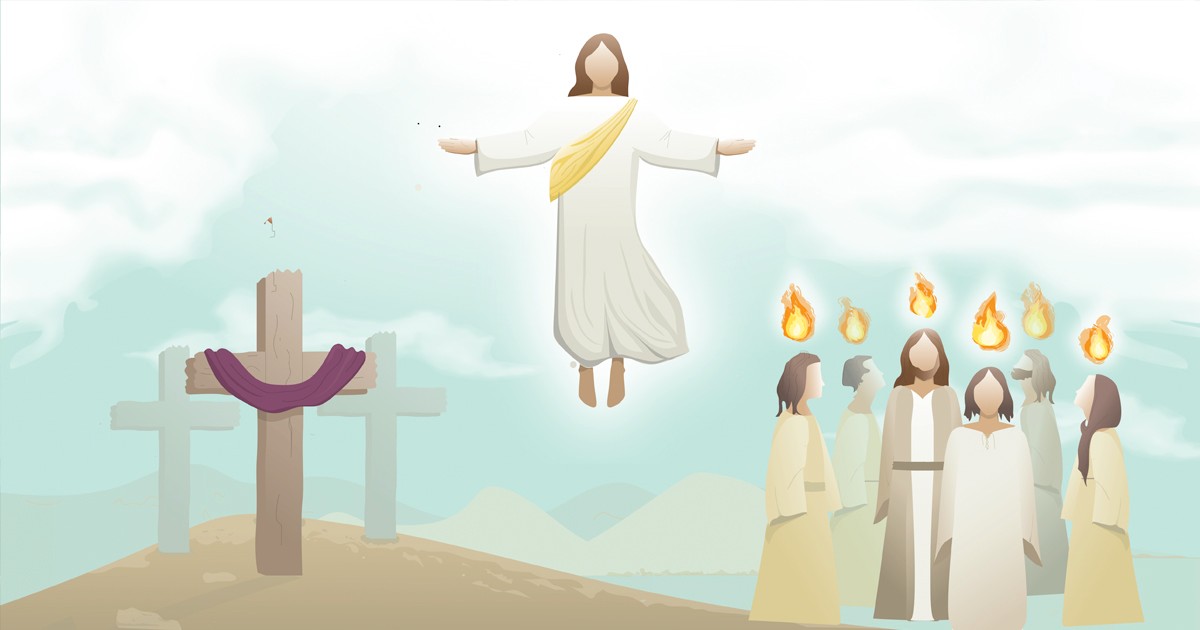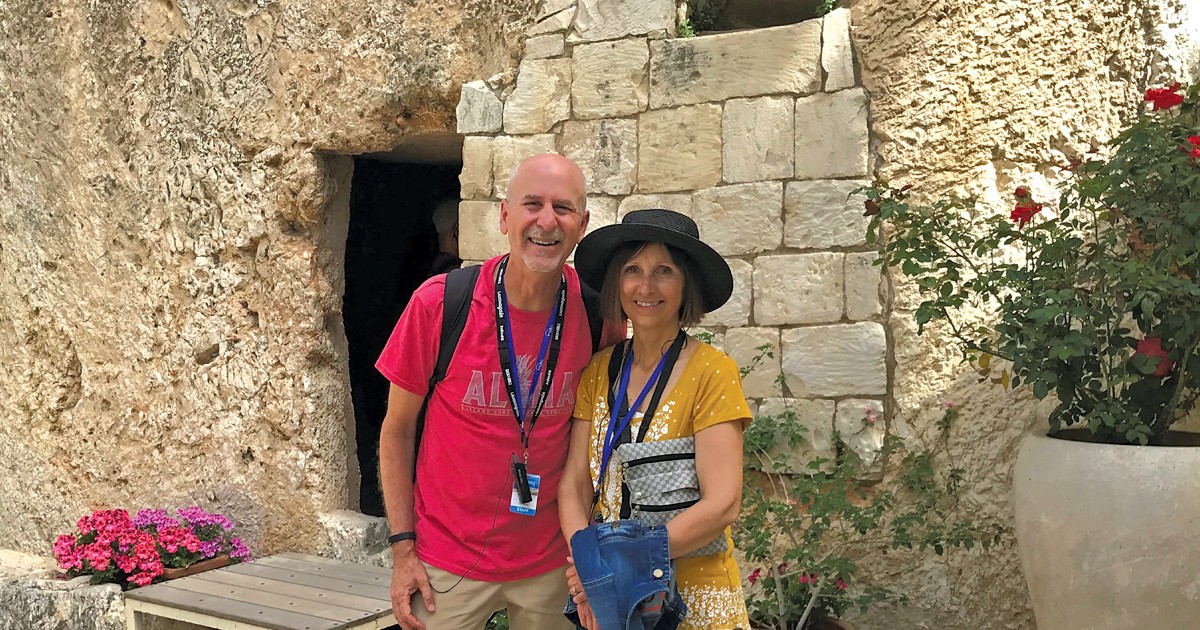Who was Jesus? He has been portrayed by Hollywood many times, from the by-the-book The Greatest Story Ever Told to the controversial The Last Temptation of Christ and The Passion of the Christ to, most recently, the popular miniseries The Bible. All of these films explore different aspects of Jesus' character, but how accurate are they?
This month, a new film joins the list, depicting the temptation of Jesus in the desert before He began His public ministry. Those looking for a typical Hollywood epic won't find it in Last Days in the Desert—but what they will find may change the way they see the Man who was also the Son of God.
Relationship Crisis
In the Bible, after Jesus was baptized, He went out into the desert, where He spent 40 days and nights fasting and praying. There, He was tempted three times by Satan, but He resisted.
Last Days in the Desert expands on this narrative, creating a fictional story while staying true to Jesus' character. In the film, rather than remaining alone in the desert, Jesus (Ewan McGregor)—who is called Yeshua in the film, the Hebrew form of Jesus—encounters a family living in a small, isolated camp. Having already been in the desert for many days, Yeshua is tired and dirty. Still, there is something unmistakably holy about Him. As director Rodrigo Garcia (who also directed the Oscar-nominated Albert Nobbs) notes in an interview with Christianity Today, “Because of Ewan's presence, and because it is Jesus, you can throw as much dirt and raggedness on that as you want, but there's still a glow.”
While He is staying with the family, Yeshua is visited by Satan—also played by McGregor. It's an unusual but inspired choice. While the film does not go so far as to suggest that the temptations Yeshua faces come from within or that the two are equals, Satan is able to challenge Yeshua on the deepest level—by suggesting His Father does not love Him.
In the film, Satan, who, according to Scripture, was the most beautiful of God's angels before he rebelled and left his place in heaven, seems like a punished child. As McGregor explains to Christianity Today, “There was a jealousy there [between Yeshua and Satan], because Jesus knows His Father in a way that Satan can never know his father.”
Once He encounters the family, Yeshua joins them in their daily activities—helping the father and son with their work and listening to their stories. He soon perceives the emotional distance between them, an echo of His own feelings of abandonment. As the film opens, Yeshua is kneeling and asking, “Father, where are You?” The Son of God finds Himself in a figurative as well as a literal desert. As He tries to help the family overcome their tensions, He must also come to grips with His relationship with His own Father.
Road to the Cross
The Jesus portrayed in Last Days in the Desert may seem strange to Christians who are used to seeing Jesus as Christ, the Son of God. But in this time of trial, McGregor shows us Jesus the Man—who wonders, just as we often do, where God is when life becomes difficult.
McGregor's performance draws out Jesus' humanity—whether He's hauling a bucket of water or allowing an insect to crawl on His arm. Yet the film never suggests that Christ was not the Son of God.
The two natures of Jesus create a paradox—how can someone be both fully God and fully human? The answer may be found in looking at the incredible humility of Christ: “Who, being in very nature God, did not consider equality with God something to be used to His own advantage; rather, He made Himself nothing by taking the very nature of a servant, being made in human likeness. And being found in appearance as a human being, He humbled himself by becoming obedient to death—even death on a cross!” (Philippians 2:6-8).
Audiences going to see Garcia's film already know where the story is going—after His time in the desert, Jesus would minister to the people of Israel for three years before suffering and dying for the salvation of the world.
“I think this was the period of His life where He went to become certain,” says McGregor. “At the beginning, Jesus was tired and unhappy that God the Father wasn't giving Him answers, and He has things He wants to talk about. As He goes through the experience and interacts with the family, He becomes certain of His path.”
That path leads Him to the cross—but also to the Resurrection.
Divine Love
With a script that is light on dialogue and a minimalist score, Last Days in the Desert offers a more poetic examination of the character of Christ. Filmed in the Californian desert, it features breathtaking scenes from multiple-award-winning cinematographer, Emmanuel Lubezki (The Tree of Life, Gravity).
While other films about Jesus tend to emphasize His divinity or His humanity, Last Days in the Desert strives to depict both. Yeshua is a God who gets hungry and tired and feels pain. He is a God who is not removed from the world, but willingly involves Himself in the lives of ordinary people. And He's a God who loves the world infinitely—enough to give His own life on Good Friday.
On that first Easter, Jesus rose from the dead, opening the possibility of eternal life to all who believe in Him (see John 3:16). That crucial time of trial in the desert prepared Him for what was to come.
(Photo: Courtesy of Division Films)
This month, a new film joins the list, depicting the temptation of Jesus in the desert before He began His public ministry. Those looking for a typical Hollywood epic won't find it in Last Days in the Desert—but what they will find may change the way they see the Man who was also the Son of God.
Relationship Crisis
In the Bible, after Jesus was baptized, He went out into the desert, where He spent 40 days and nights fasting and praying. There, He was tempted three times by Satan, but He resisted.
Last Days in the Desert expands on this narrative, creating a fictional story while staying true to Jesus' character. In the film, rather than remaining alone in the desert, Jesus (Ewan McGregor)—who is called Yeshua in the film, the Hebrew form of Jesus—encounters a family living in a small, isolated camp. Having already been in the desert for many days, Yeshua is tired and dirty. Still, there is something unmistakably holy about Him. As director Rodrigo Garcia (who also directed the Oscar-nominated Albert Nobbs) notes in an interview with Christianity Today, “Because of Ewan's presence, and because it is Jesus, you can throw as much dirt and raggedness on that as you want, but there's still a glow.”
While He is staying with the family, Yeshua is visited by Satan—also played by McGregor. It's an unusual but inspired choice. While the film does not go so far as to suggest that the temptations Yeshua faces come from within or that the two are equals, Satan is able to challenge Yeshua on the deepest level—by suggesting His Father does not love Him.
In the film, Satan, who, according to Scripture, was the most beautiful of God's angels before he rebelled and left his place in heaven, seems like a punished child. As McGregor explains to Christianity Today, “There was a jealousy there [between Yeshua and Satan], because Jesus knows His Father in a way that Satan can never know his father.”
Once He encounters the family, Yeshua joins them in their daily activities—helping the father and son with their work and listening to their stories. He soon perceives the emotional distance between them, an echo of His own feelings of abandonment. As the film opens, Yeshua is kneeling and asking, “Father, where are You?” The Son of God finds Himself in a figurative as well as a literal desert. As He tries to help the family overcome their tensions, He must also come to grips with His relationship with His own Father.
Road to the Cross
The Jesus portrayed in Last Days in the Desert may seem strange to Christians who are used to seeing Jesus as Christ, the Son of God. But in this time of trial, McGregor shows us Jesus the Man—who wonders, just as we often do, where God is when life becomes difficult.
McGregor's performance draws out Jesus' humanity—whether He's hauling a bucket of water or allowing an insect to crawl on His arm. Yet the film never suggests that Christ was not the Son of God.
The two natures of Jesus create a paradox—how can someone be both fully God and fully human? The answer may be found in looking at the incredible humility of Christ: “Who, being in very nature God, did not consider equality with God something to be used to His own advantage; rather, He made Himself nothing by taking the very nature of a servant, being made in human likeness. And being found in appearance as a human being, He humbled himself by becoming obedient to death—even death on a cross!” (Philippians 2:6-8).
Audiences going to see Garcia's film already know where the story is going—after His time in the desert, Jesus would minister to the people of Israel for three years before suffering and dying for the salvation of the world.
“I think this was the period of His life where He went to become certain,” says McGregor. “At the beginning, Jesus was tired and unhappy that God the Father wasn't giving Him answers, and He has things He wants to talk about. As He goes through the experience and interacts with the family, He becomes certain of His path.”
That path leads Him to the cross—but also to the Resurrection.
Divine Love
With a script that is light on dialogue and a minimalist score, Last Days in the Desert offers a more poetic examination of the character of Christ. Filmed in the Californian desert, it features breathtaking scenes from multiple-award-winning cinematographer, Emmanuel Lubezki (The Tree of Life, Gravity).
While other films about Jesus tend to emphasize His divinity or His humanity, Last Days in the Desert strives to depict both. Yeshua is a God who gets hungry and tired and feels pain. He is a God who is not removed from the world, but willingly involves Himself in the lives of ordinary people. And He's a God who loves the world infinitely—enough to give His own life on Good Friday.
On that first Easter, Jesus rose from the dead, opening the possibility of eternal life to all who believe in Him (see John 3:16). That crucial time of trial in the desert prepared Him for what was to come.
(Photo: Courtesy of Division Films)










Leave a Comment